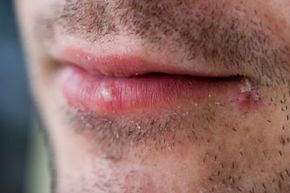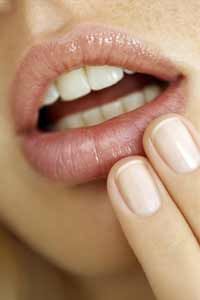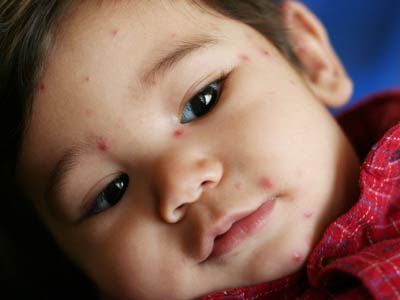It can happen at the worst possible times. You're stressed out about a speech you have to give at work, or maybe you're nervous about a first date, and you start to feel a prickling and burning in your lip. Soon, a hard bump that feels like a pimple forms under the skin's surface. But you know this isn't a zit; you're getting a cold sore.
You're not alone. Fifteen to 30 percent of the population suffers from cold sores, or fever blisters [source: McKinley]. Soon after those first symptoms show up, red blisters appear on or around the lips. After a few days, the painful blisters break, release a clear fluid and a scab forms. Cold sore sufferers may have to deal with fever, sore throat and mouth, or swollen lymph nodes in the neck [source: Web MD].
Advertisement
Cold sores can be unsightly and embarrassing. As you'll learn on the next page, they're caused by the same virus that causes genital herpes. The virus can be passed through sexual contact, which sometimes embarrasses those suffering from cold sores because the disease has a sexual or promiscuous stigma attached to it. But as you'll see, the virus is just as easily spread through saliva, so this association isn't particularly accurate [source: Mayo Clinic]. There is currently no cure for the virus that causes cold sores, and people who suffer from them generally experience a few outbreaks a year [source: McKinley]. But there are ways to reduce the number of outbreaks.
Read on to learn how cold sores are spread from person to person, what some of the known causes of cold sore outbreaks are and how you can get rid of cold sores once they do appear.
Advertisement



